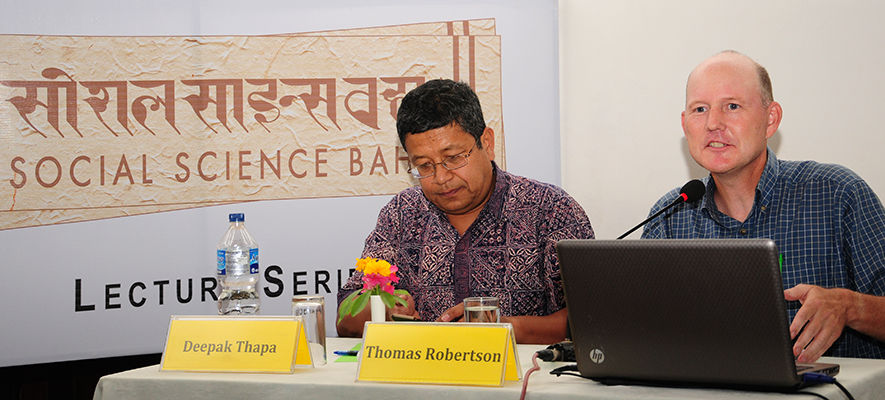Lecture Series
Developing International Development: DDT And U.S. Environmental And Social Engineering In The Chitwan Valley, 1952-1965

Thomas Robertson
on
Developing International Development: DDT and U.S. Environmental and Social Engineering in the Chitwan Valley, 1952-1965
For most outsiders, Nepal evokes the soaring peaks of the Himalaya, not the scourge of malaria. But much of Nepal’s history has been profoundly shaped by malaria. For centuries, malaria plagued most lands up to 4000 feet, including mountain valleys and the Tarai, and contributed to the country’s isolation. All this changed during the 1950s and 1960s with the use of DDT through a joint US-WHO-Nepali government programme. Although falling short of its goal of total eradication, the programme dramatically transformed the country.
This lecture will examine the first of these projects in the Chitwan District. Until the 1950s, the Chitwan Valley was, like all of Nepal, closed off to the outside world because of politics and malaria. By 1975, just two decades after the programme’s inception, Chitwan had become Nepal’s breadbasket and the site of its first national park. Based on archival documents and oral histories from the U.S. and Nepal, this lecture will examine the geopolitical, environmental, and economic consequences of this vast technology-based programme. It will tease out t he American and international ideas of nature, disease, technology, and development that informed the programmes. The lecture will also examine the experiences of variously situated Nepal actors—government planners and engineers, migrants from the hills, and the Tharu, the indigenous group who had long called the Chitwan valley home.
* * *
Listen to or download lecture in audio format
Thomas Robertson is an associate professor at Worcester Polytechnic Institute in Worcester, Massachusetts, USA. He first came to Nepal in 1988 with the School for International Training and later served in the US Peace Corps in Khotang District from 1992 to 1995. He received his PhD in history from the University of Wisconsin-Madison in 2005. Professor Robertson is author of The Malthusian Moment: Global Population Growth and the Birth of American Environmentalism (Rutgers University Press, 2012), which examines American ideas about population growth from World War I to the Reagan Administration. His new research uses archival and ethnographic data to examine the environmental history of US development projects in Nepal during the Cold War.
